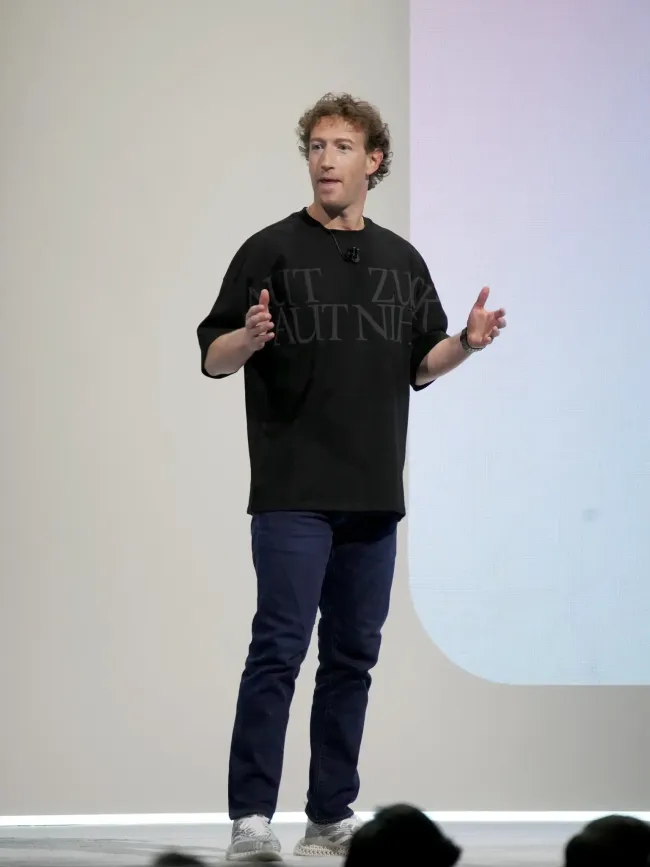Zuckerberg’s Trump Card: How a Secret Meeting Sparked Meta’s Radical Shift on Free Speech
In a six-week sprint, Mark Zuckerberg rewrote the rules of online discourse—igniting a firestorm of praise, outrage, and fear.
Meta CEO Mark Zuckerberg has made a bold, controversial decision to overhaul the company’s content moderation policies, aligning them with President-elect Donald Trump’s vision. This major shift—including the elimination of third-party fact-checking and relaxed rules on hate speech—was reportedly sparked by a private meeting between Zuckerberg and Trump at Mar-a-Lago in November 2024.
The Mar-a-Lago Meeting: A Turning Point
Zuckerberg’s visit to Trump’s Florida estate marked a surprising reconciliation between the two, who have had a tumultuous relationship in the past. Just weeks after Trump’s 2024 election victory, Zuckerberg met with the president-elect and his team to discuss the future of online speech and Meta’s role in shaping it. This meeting, combined with Trump’s earlier threats to hold Zuckerberg accountable for alleged election interference, seems to have catalyzed Meta’s sweeping policy changes.
Key Policy Changes at Meta
In a brief video announcement, Zuckerberg revealed several major updates to Meta’s approach:
- Ending Third-Party Fact-Checking: Meta will replace its fact-checking program with a user-driven “Community Notes” system, similar to the one used by Elon Musk’s X (formerly Twitter). Critics warn that this change could lead to the unchecked spread of misinformation.
- Relaxing Hate Speech Rules: Restrictions on discussions about immigration, gender identity, and sexual orientation have been loosened. For example, calling LGBTQ+ individuals “mentally ill” is now permitted—a change that advocacy groups argue could fuel harassment and harm.
- Relocating Content Moderation Teams: Meta is moving its trust and safety teams from California to Texas, citing concerns over perceived bias within its workforce.
- Reintroducing Political Content: After years of deprioritizing political posts, Meta will now algorithmically promote political content. Critics fear this will deepen societal divisions.
A Strategic Move to Align with Trump
Zuckerberg’s announcement is widely seen as an effort to gain favor with the incoming Trump administration. Trump himself hinted that the changes were likely a response to his earlier threats against Zuckerberg. Additionally, Meta has added UFC CEO Dana White, a prominent Trump supporter, to its board, signaling a clear alignment with the president-elect’s agenda.
Global Concerns and Criticism
Although the changes are initially focused on the U.S., they have raised concerns worldwide. Meta’s fact-checking program, active in over 100 countries, has been crucial in combating misinformation in regions like Myanmar and Ukraine. Experts warn that scaling back these efforts could lead to increased violence and political instability.
Critics also accuse Zuckerberg of using “free speech” as a cover for political and financial motives. Maria Ressa, Nobel Peace Prize winner and CEO of Rappler, condemned the move, stating: “What Facebook is doing is dismantling journalistic standards and allowing lies, anger, fear, and hate to dominate the platform.”
A New Chapter for Meta and Online Speech
Zuckerberg’s shift represents a significant departure from Meta’s previous stance on content moderation. By embracing Trump’s vision of “free expression,” the company risks alienating advertisers, users, and advocacy groups, while potentially empowering authoritarian regimes globally.
As the Trump administration prepares to take office, the full impact of Meta’s policy changes remains to be seen. One thing is certain: Zuckerberg’s gamble on free speech has set the stage for a contentious and transformative era in social media.
